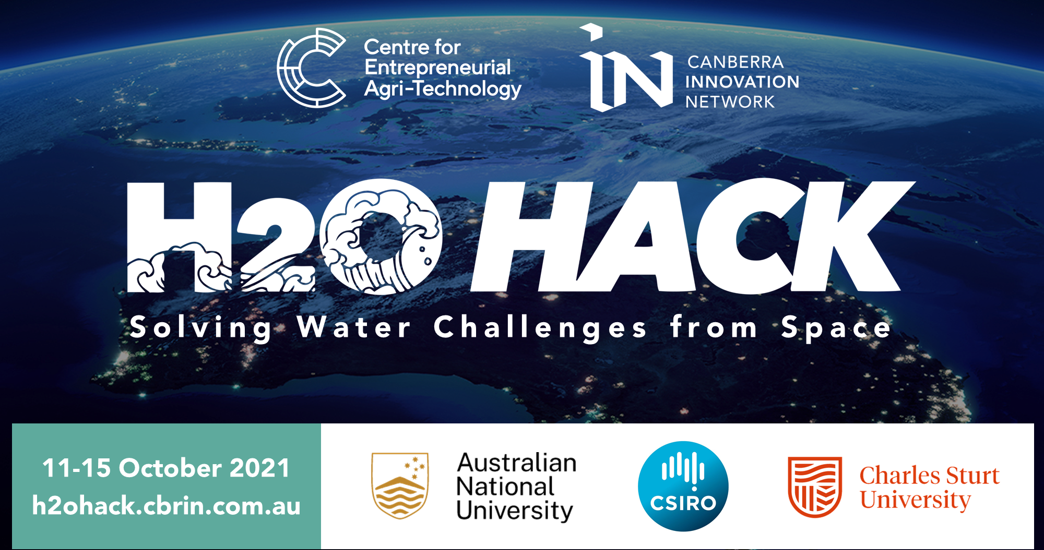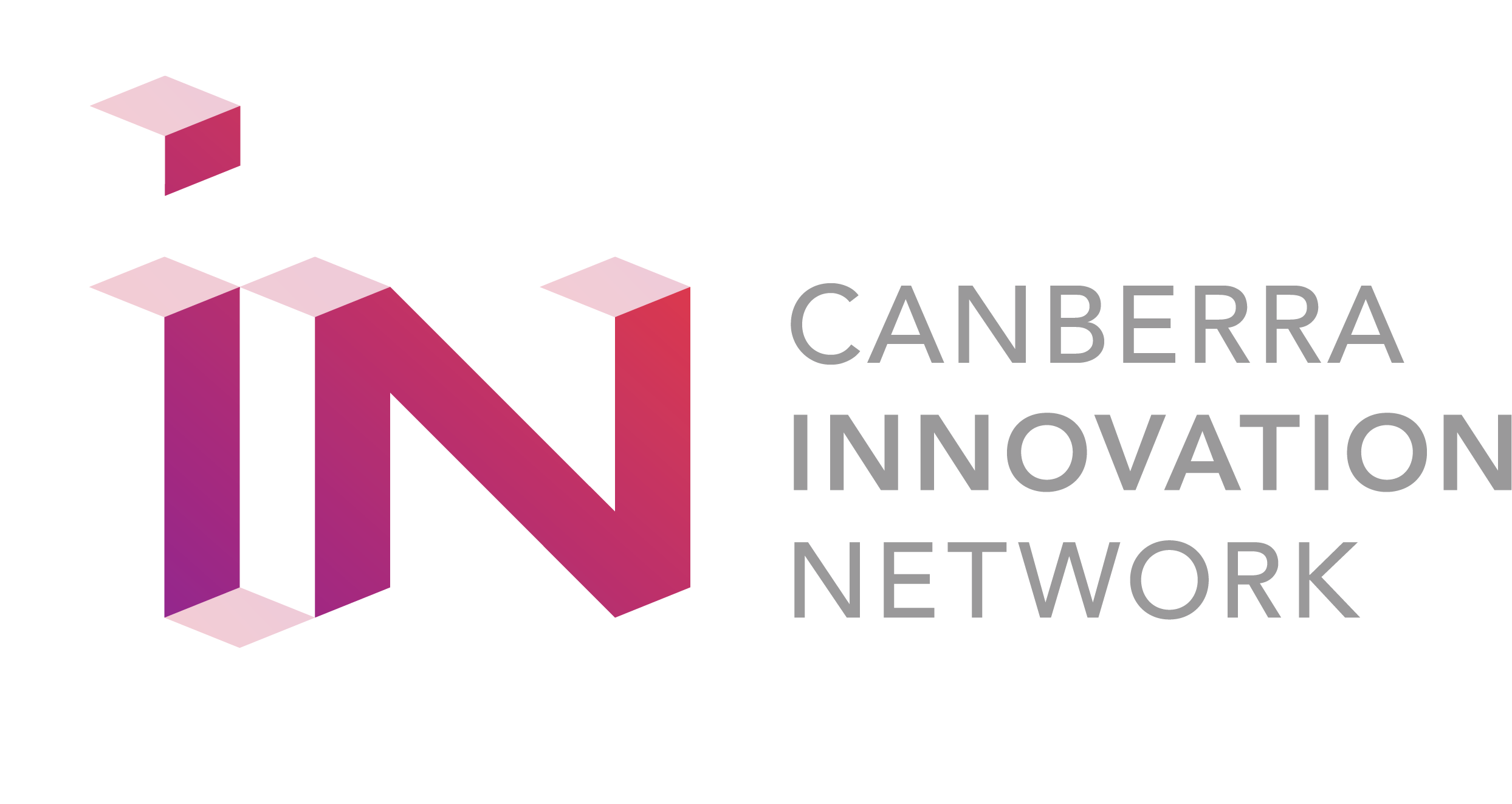- 30 September 2021
- Posted by: Canberra Innovation Network
- Categories: Event News, General News

Inviting would-be innovators, ambitious researchers, and entrepreneurs to take place in ‘H2O Hack: solving water challenges from space’, CBRIN is collaborating with the Centre for Entrepreneurial Agri-Technology (CEAT), ANU Institute of Water Futures, ANU Institute for Space, CSIRO and Charles Sturt University, to inspire participants to use space technology to address Australia’s water challenges and generate significant environmental, economic and societal impacts.
Taking place online from 11-15 October, the hackathon offers a $20,000 cash prize to the winning teams as well as a unique opportunity to combine business and science as they tackle one of the planet’s most pressing challenges while receiving access to leading mentors from the industry and professional workshops.
According to CBRIN, a hackathon is a blend of two different terms: “the ‘hacking’ is putting something together in a fast and imperfect but functional manner, and ‘marathon’, keeping at it without stopping until complete.”
The winners of last year’s hackathon, postdoctoral research scientists Dr Samantha McGaughey and Dr Annamaria De Rosa and three undergraduate research students, found the challenge to drought-proof the agrifood sector incredibly beneficial to take their idea to the next level.
Along with Australian National University (ANU) lab leader and previous H2O Hack mentor Dr Caitlin Byrt, Samantha and Annamaria went on to create Membrane Transporter Engineers Pty Ltd, a company working on advancing the function of membrane separation technologies to enable the harvest of valuable resources from liquid wastes.
Now, a year after their initial success in H2O Hack 2020, Caitlin, Samantha and Annamaria all agree the challenge is an innovative way to involve people from a variety of professional backgrounds in solving some of the challenges related to the impact of climate change on water security.
“One of the things that was really awesome about the hackathon idea is that within the community you’ve got people from all different types of sectors,” says Caitlin.
“They might do their everyday job and they might wonder about an idea and I think with the hackathon dangling a monetary prize in front of it… it’s a great way to kind of ‘flush’ those ideas out of different communities that work on different things.”
Along with working with inspiring industry representatives and academics, teams will be expected to collaborate with different sectors to optimise water use in regional communities.
For both Samantha and Annamaria, connecting with local farmers to learn how scientists can help was eye opening.
“It’s a really great way for scientists to get exposure to a different way that they can have impact, not just through doing their research but then translating that research into impact,” says Samantha.
“I didn’t really have any concept of how you would go about translating research into a commercial reality but through H2O Hack, it definitely solidified some of our ideas and mapped a path forward.”
Annamaria says “When you’re a scientist you generally have a hypothesis and often assume what the problem is.”
“During the hackathon, we were pushed to reach out to people outside of our team, and actually understand what the problem is so that we can deliver high impact solutions in a more efficient way.”
As Australia’s water security is being significantly influenced by climate change with more droughts, heat waves, and floods, last year’s winners believe CBRIN’s H2O Hack is an amazing way to get some support for an innovative idea.
“For those people who might be like ‘ Oh, I’m kind of interested in the hackathon, but I’m not really sure,’ committing to do it and participate can connect them with the right kind of people in both the government sector, the private industry sector and all kinds of different areas that would then down the track, potentially help them really make it happen,” says Caitlin.
Originally posted by Erin Cross on HerCanberra

